Student Blog
Magic of GI ⟩
May 4, 2022, by Global Initiatives Team
Community International What are OS/OT?
By Maggie Goodfellow MA ’21, OTD ’22
Editors Alison Chang and Vanessa ElShamy
Entry-Level Professional Master’s students
If I told you there was magic behind one of the doors in CHP, would you believe me? Well, no — not the traditional type of ‘magic’ that involves playing cards or bunnies appearing out of hats, but rather, something even better. Behind the doors of CHP 161, you’ll find the magic of a global community, the magic of pushing boundaries, and the magic of discovering what it means to “grow together”. In case you couldn’t tell, the first word that comes to my mind when I think about Global Initiatives is . . . Magic (surprise!).
#1. The Magic of a Global Community. The door (and room) of CHP 161 can be quite deceiving at first glance. However, upon opening the door, you’ll immediately find a friendly face who will welcome you in and ask you about your day. As someone whose home is across the world in South Korea, the GI office quickly became my home away from home, somewhere I could go when I needed a break in between classes, somewhere I could trust would be welcoming and safe, and somewhere I knew a friend would be. The irony of our small office is that inside it lives a global community. Everyone’s culture is welcomed and the mundane interactions, such as sharing snacks from our respective countries or creating a poster for a holiday, become the building blocks of lifelong friendships. There’s something very special about the friendships built through GI, as they are grounded in our shared love for celebrating each other’s cultural differences and upbringings. Through Global Initiatives, I’ve seen the magic that can happen when you not only keep the door open for others, but also provide them with a seat, listen to what they have to say, and recognize there is always an opportunity to learn from them.
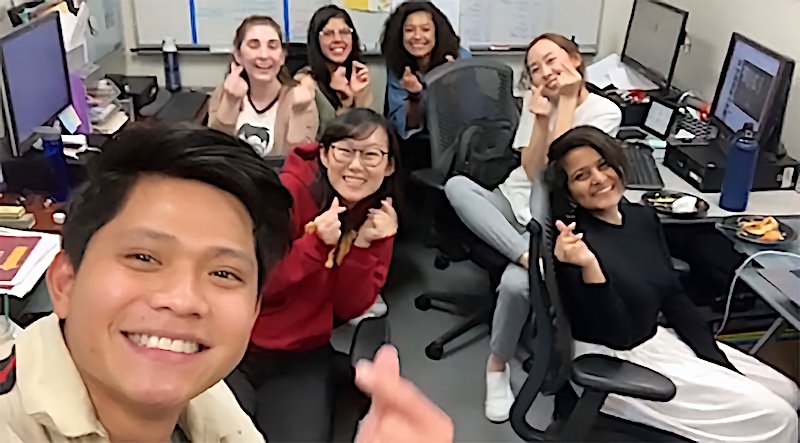
Moments in the office — our door is always open!
#2. The Magic of Pushing Boundaries. When it comes to magic tricks, you typically see the outcome but rarely see the hard work and determination that’s required to master them. More importantly, it takes confidence and the belief in yourself that you can do something that seems impossible. While it seems silly to compare the projects of GI to a magic trick, quite frankly, some of the projects did seem impossible at first. To name a few, just over the past 3 years our team has implemented Frientorship Circles, a global poster exchange, a global Pen Pal program, a “Global Citizenship” thread in the new Entry-Level OTD curriculum, and so much more. I’m incredibly grateful to this team who has time after time shared their creativity and demonstrated the power of creating something with their hearts and the intention to uplift others. Moreover, none of this would be possible without Danny Park, who empowers each member of our team to take their ideas and transform them into reality. Together, this is what creates the magic to push and continue pushing boundaries.
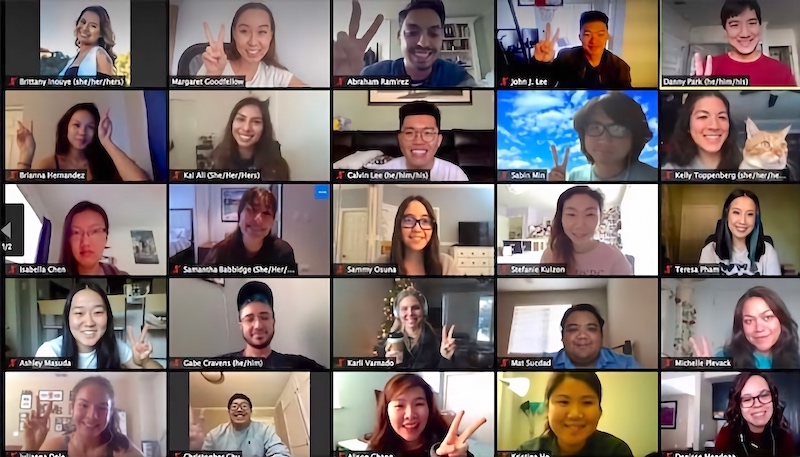
Friendtorship Circle meeting from 2020 — we had students from across all of Chan’s academic programs!
#3. The Magic of “Growing Together”. When I first joined Global Initiatives as a student worker, I was a first year MA-2 student who was eager to learn yet shy in voicing my opinions. It’s funny how, in just three years, I’m able to see so much growth in myself, both personally and professionally. Thank you, Global Initiatives, for being part of my journey and showing me that growth rarely happens alone — it happens through the mentorship and support of others. From celebrating birthdays to accomplishing various professional milestones together, I could not have asked for a better team to grow with by my side.
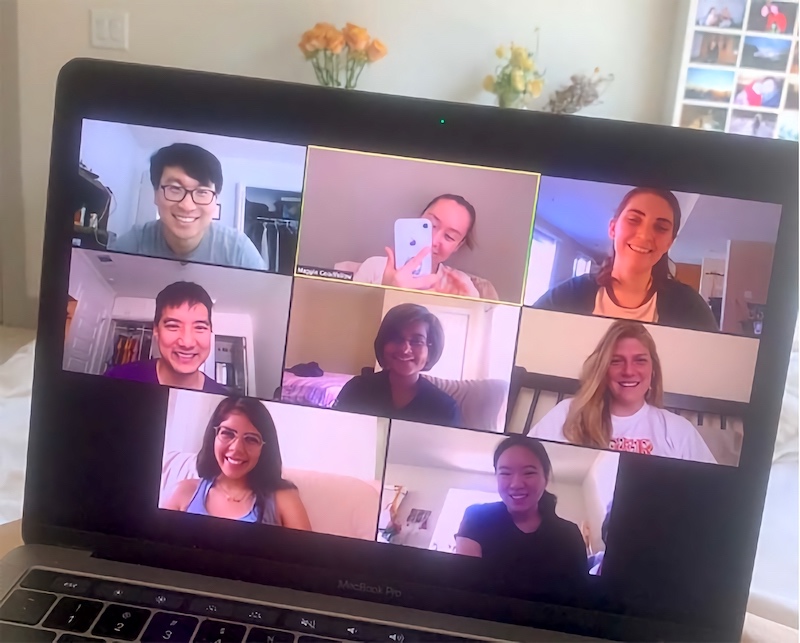
Fun fact — our team used to be 8 people total! We really have grown together individually and as an office
⋯
AHTO: An Introductory Retrospective ⟩
April 27, 2022, by Global Initiatives Team
By Carly Martinez MA ’23
Editors Abraham Ramirez and Michelle Plevack
Entry-Level Professional Master’s students
When I received my acceptance email to USC, I — like many others before me — wondered how I was going to do it. I knew that I would need a support system to keep me going. My family and I were not communicating, so I was scared. I felt alone.
Partway through the fall semester of my first year, I learned about a new organization through Global Initiatives aimed at the Spanish-speaking community — Asociación Hispanohablante de Terapia Ocupacional, or “AHTO.” I was thrilled, and looked forward to being around people who spoke Spanish, which was reminiscent of my late grandmother who helped raise me.
However, I was concerned that I might not be “Mexican enough” to participate, despite speaking Spanish. ‘Was that enough?’ ‘Was my Spanish good enough?’
I anxiously brought this up during an early interaction with AHTO. When I shared my concern, this sentiment was echoed by other members who also questioned their identities due to imposed cultural markers, which can feel a lot like gatekeeping. I learned that, like me, they too were in this in-between place, where we were left asking ourselves where we belong and if we were enough.
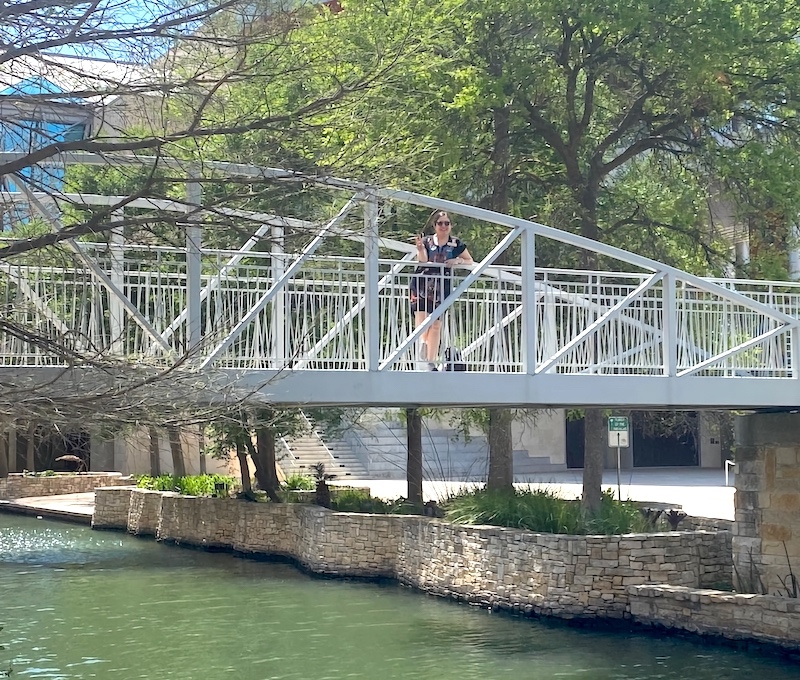
¡Saludos de AOTA San Antonio! (Greetings from the AOTA Conference in San Antonio!)
I recently told a friend that the reason why microaggressions are so insidious, is that they’re often so small that they can make you question whether you are overreacting to a situation or if it even took place the way you remember. This has been my experience as a member of a minoritized group — the feeling that I am living through a continuous microaggression, and left wondering if I am making things up or should be happy with the way things are. Or, are there legitimate reasons to be unhappy and should I ask for more? It’s a bit like being in a toxic relationship, and it can mess with your head, particularly when it weighs on you alongside class assignments.
As I began compiling stories of my fellow students’ experiences, the triumphs and challenges overheard at AHTO meetings at socials and at conferences, I began to see connections that had not been previously apparent to me. That’s not only amongst Latine* students at Chan, but other minoritized students as well. Conversations have taken place that require action and advocacy. They still are, and they probably always will, leaving a need to ask for more on an ongoing basis.
This is why I am glad organizations like AHTO exist. They serve as places where I and others can verbalize our experiences and share them with others, allowing the space to process them in a way that leads to validation and support. My hope for AHTO is that it will continue to provide a platform for students to demand change from the university and express their needs in a way that will continue to elicit change, not only for the Latine population, but everyone who feels like they need to make themselves seen, heard and understood.
I hope AHTO will serve as a model for, and collaborator with students seeking empowerment and resources. It is important for us to realize our power, particularly when we work together, because it is only when we feel acknowledgement and action on the part of the division that we will be able to create goals that are SMART (Specific, Measurable, Attainable, Relevant, and Time-based). Isn’t that OK to want?
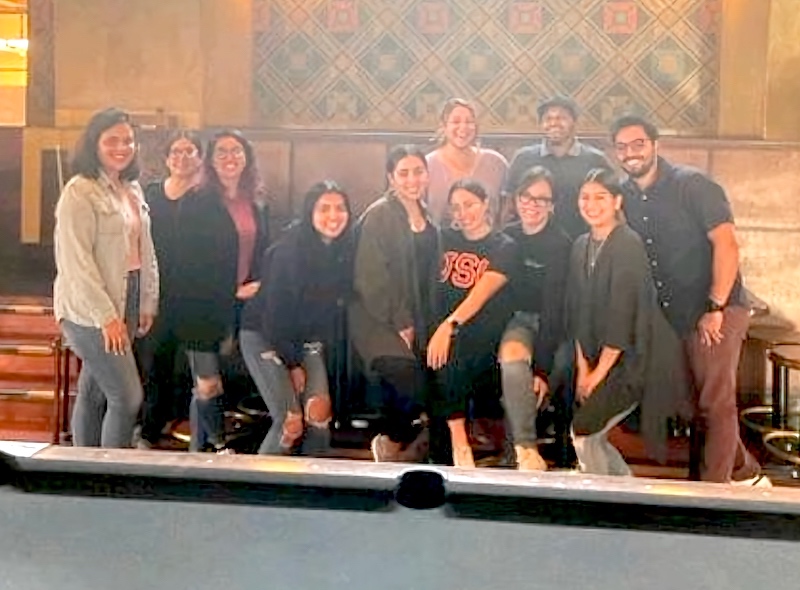
AHTO’s end-of-the-year social at Homebound Brewhouse on April 12, 2022
*I prefer to use Latine over Latinx or Latin@ because it works in both Spanish and English and is more inclusive. Latinx does not work in Spanish, so it is not the preferred term by some Spanish-speakers; instead it is looked down upon by many people living in the US and Latin America as a forced idea contrived by non-Latine, white folks. Please see this comic for more information and explanation.
⋯
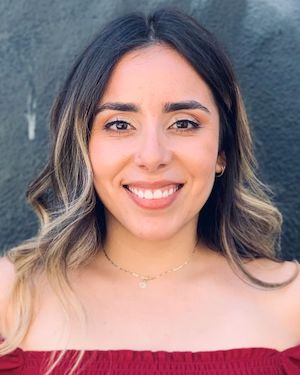
The USC U don’t C ⟩
April 21, 2022, by Silvia
Admissions Community Diversity First-Gen Getting Involved
No todo es color de rosa. Like my friend Rolly says, “There is a USC that you don’t see.”
Holistic admissions? I love it. I am all in for decreasing barriers and increasing access for students to enter spaces of higher education. Do you know the percentage of Latinx individuals in higher education? There is not many of us, but that is changing. We are changing it.
As the new director of admissions, Dr. Anvarizadeh and her team pushed for a holistic process that would view applicants as whole individuals—considering their core values, thoughts about equity, diversity, and inclusion, etc. — and not just as a set of test scores or GPAs. Let me tell you why this has been a game changer, but more importantly, why the work can not stop only with holistic admissions.
⋯
In 2018, I graduated from Cal Poly SLO with my first collegiate degree. The time that I had to rejoice in that feeling of being the first in my family to graduate college was short lived as my dad would be losing his job shortly after. I was quickly reminded of my role and my identity as a Mexican daughter, the eldest child in a family of eight. My educational and career goals were put on pause because as I was raised, in my Mexican culture, family comes before and is above everything. Naturally embracing that role, I texted my brothers to figure out how we were going to pull through, like we always do.
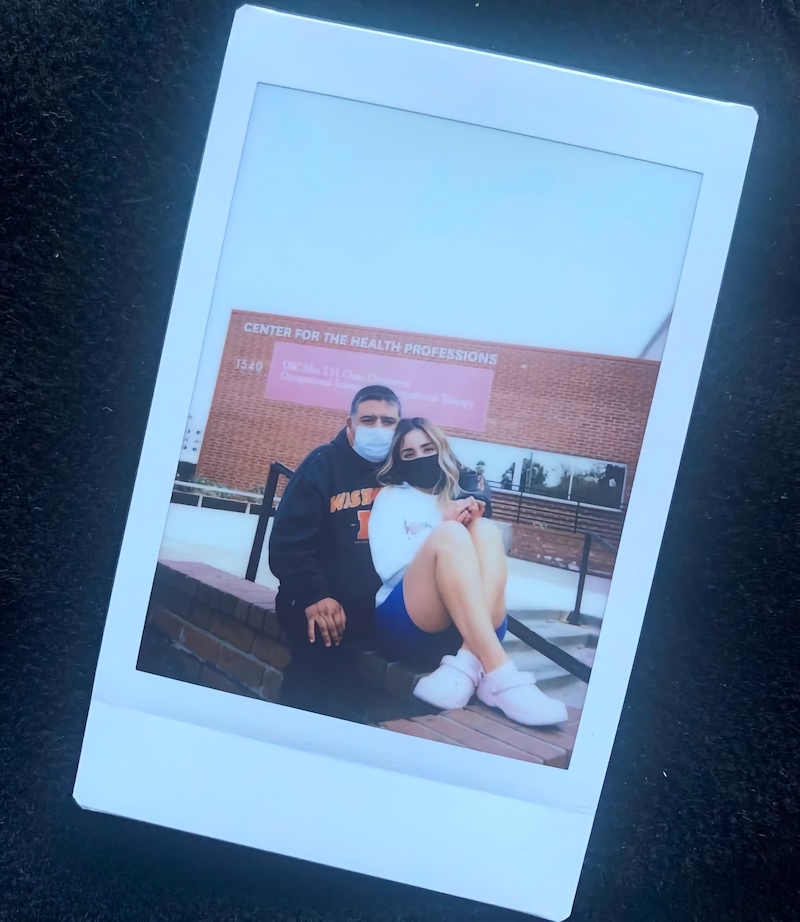
Mi papá y yo at CHP
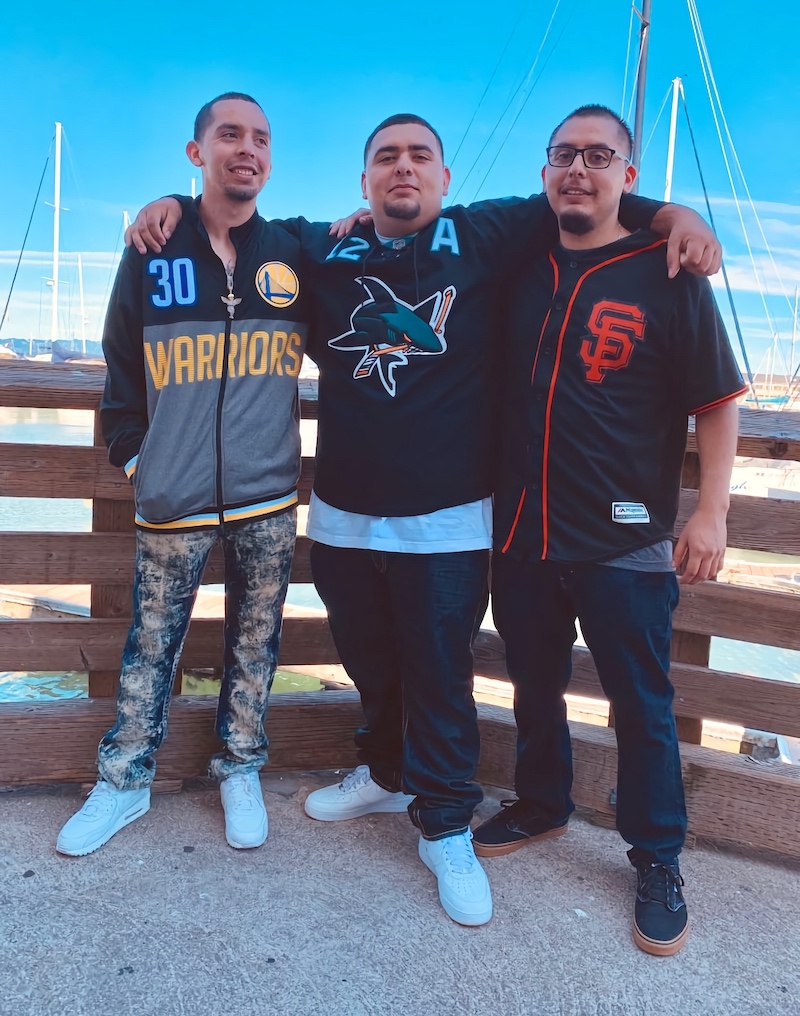
My 4Lifers, mis hermanos
For the next year or so, I worked Monday-Sunday and gave my dad more than half of my paycheck. When I began considering the possibility of furthering my education and applying to graduate school, I felt guilty. I felt selfish. How could I be thinking about myself and what I wanted when my dad was still not 100% back on his feet? It is ironic because even the decision of going back to school was based on helping my parents. I needed this degree to be able to get a job in my field of interest and so that I could earn more money to give back to my family. That is how collectivist cultures like mine work.
The thought of resuming my role and identity as a student was great, but with what money and what time? What money was I able to save for grad school? What money did I have to spare to take the GRE more than once or to spend on study materials, for that matter? What time did I have to sit for a 4-hour exam more than once? I didn’t. Talk about the barriers that USC Chan’s holistic admissions addressed for me. In my application video I stated the occupations that got me through the difficult time my family faced: work and prayer.
That is my story, but I write this blog to highlight the fact that there are stories behind the BIPOC students being admitted into the program that you do not see. Holistic admissions have opened the door for us to be able to step into higher spaces, but to quote my friend Miriam De La Torre, “don’t invite us into the room if there is not a seat at the table open for us.” You see the faces and numbers that represent diversity but are ignorant to the adversity attached to them. If the work is not to be performative, we cannot continue to casually disregard that the “E” in the new JEDI curriculum stands for equity vs. equality. You can’t allow us into the room to watch us stand. Students need to be supported beyond admission.
Se tenía que decir y se dijo.
All this to say that many of us BIPOC student and allies are here to keep the momentum going to make sure we continue to do the work past holistic admissions. Like Dr. Anvarizadeh said at COTAD’s “Springing into Action” virtual event, we cannot do this in silo — we have to lock arms to see it through. I hope y’all are ready for what is to come as we continue to collaborate, work together, and build community.
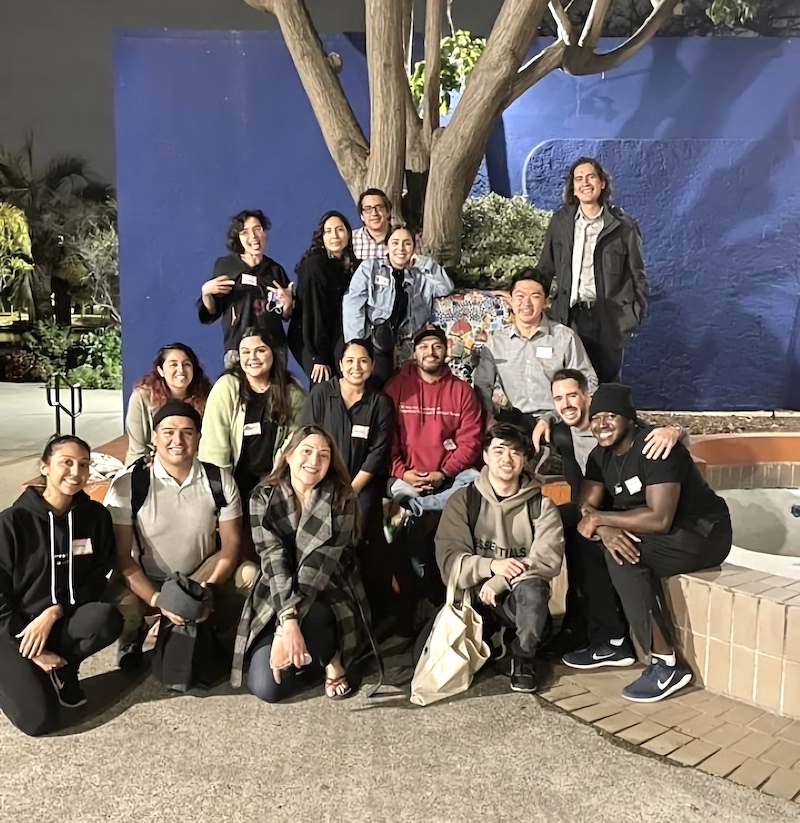
Showing up for each other: Students attend an event at Plaza de La Raza for which Dr. Diaz was a panelist
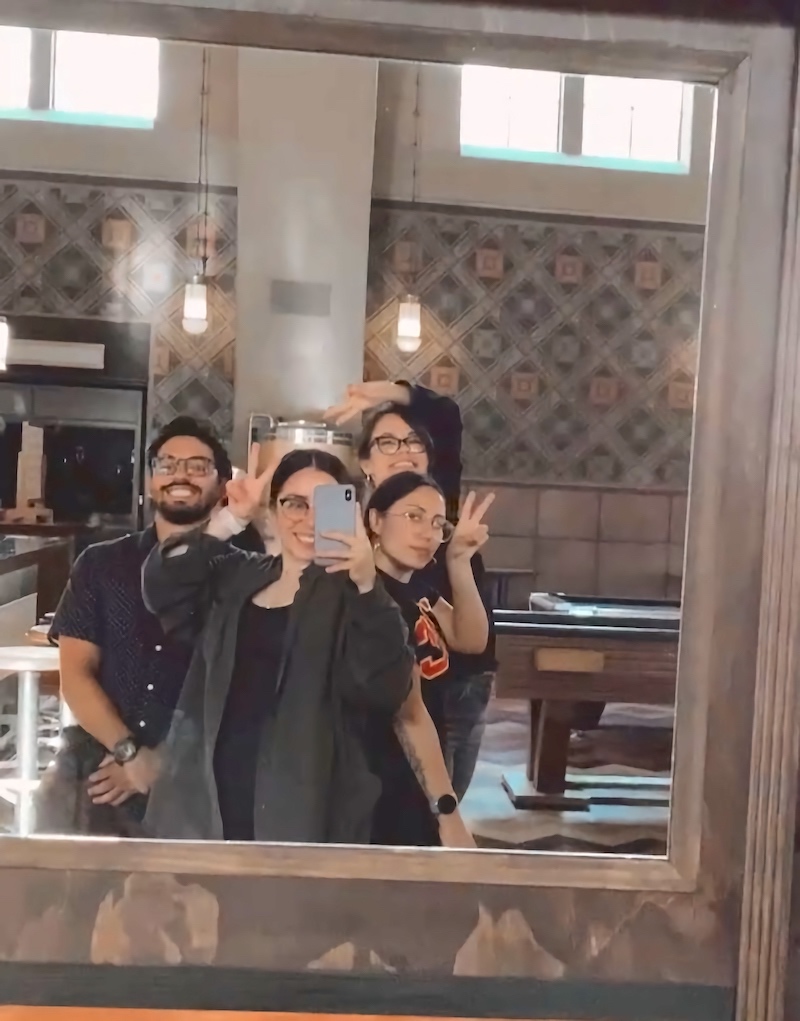
Mis amig@s y yo at one of our AHTO social events: Abraham Ramirez, Daniela Flores-Madriaga, Denisse Mendoza
⋯
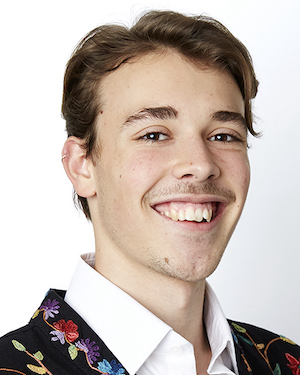
Humans of USC Chan Volume 3 ⟩
April 20, 2022, by Seth
Community Diversity What are OS/OT?
Committing to graduate school is a big decision and exploring which ones may be the best fit for you can be an equally arduous experience. I remember when I was looking into occupational therapy programs, I looked at the standard quality and cost components, but as a queer person, I was also looking for a place and a profession that I felt could let me blossom as I transitioned into a new life stage (i.e., adulthood, a professional, and, let’s be honest, a world outside of the closet). I wanted to know if I could drop my hairpins or if I had to censor myself. I wanted to know if I could bring LGBTQIA+ topics into the classroom without being anxious about how they would be received. Would I feel isolated or could I find a community? My community? What are my classmates’ experiences, and what can I learn from them? These questions can be hard to find and directly seeking them out can be intimidating or a moment of self-disclosure that may not feel right yet. After all, it’s not often you see these experiences plastered on a program’s website. So, I took it upon myself to do just that.
I hosted a forum with some LGBTQIA+ students within the Chan Division to talk about how they discovered occupational therapy, their relationship with the profession, and their experiences navigating an occupational therapy program. This is a video curated by a queer person in partnership with queer people. And this one is for the family! We even share some advice for those thinking of applying to a program. If you choose to watch it through YouTube, the video is time-stamped with each topic if you ever want to go back to a specific conversation.
I hope you find this video helpful and that these diverse perspectives give you more insight into what LGBTQIA+ student life is like in the Chan Division! Welcome back to the Humans of USC Chan!
⋯
Everything I know about life, I learned from OT ⟩
April 20, 2022, by Global Initiatives Team
Getting Involved International What are OS/OT?
By Josh Digao, Post-Professional Master’s Student
Editor Alison Chang and Vanessa ElShamy
Entry-Level Professional Master’s students
I am from a country that still has, at its very core, patriarchal values. Not to say that the Philippines is a backwards country, but I and a lot of the pre-social media generation Filipinos were raised to believe that men were supposed to act a certain way. When you are raised in such an environment, it becomes what you believe to be right and wrong. Growing up, I felt trapped in a box that dictated how I should think, act, and speak in order to be accepted as a tunay na lalaki (real man). “Don’t care too much”, “Don’t show your emotions”, “Never let others tell you you’re wrong.” In my mind, being this arrogant, unfeeling, uncaring person was what being a man meant. But I struggled with that belief; I did not want to align myself with that archaic idea of a “real man.” It was not until I took up OT that I learned I did not have to.
It was in OT school, the pontifical and royal University of Santo Tomas, that I met some of the strongest and most wonderful people who helped me unlearn my ideas of toxic masculinity and made me the person I am today. The first of which was a professor that tried her best to instill in her students the value of being kind. A Mabuting OT (kind OT) - that is what she wanted us to be. For her, it did not matter as much that you knew all the therapeutic techniques in the book, or that you could name every muscle, bone, or nerve in the human body. What mattered was that when faced with a client, you would treat them with the utmost respect and compassion, regardless of status, age, or ability. “It’s better to be the kindest therapist than the smartest therapist” is what she would always tell us. It was not until I encountered my first few clients that I realized just how right she was. Clients, and even their family members, responded best to therapy when they felt that their autonomy and personhood was respected and cared for.
The second lesson was that of empathy. This one I attribute to the remarkable group of humans I call my friends. I have been lucky enough to be around people who are deeply loving, sensitive, and emotionally mature. Through them, I learned that in order to truly understand the emotions of others, we need to be attuned to our own. However, before I could learn to comprehend my emotions, I had to allow myself to first feel them. This realization would come to not only help me in my personal growth, but in my professional growth as well. In clinics and hospitals, I would often encounter people at their lowest points. During those moments, I realized more than ever the importance of being empathetic to other people’s struggles.
The last lesson came from my clinical instructors during my internship. Being new to the field, I was largely unconfident in my skills and abilities. I had no experience, and on top of that, the knowledge I was heavily relying on was purely theoretical. But when my clinical instructors (all of whom were amazing OTs) gave me feedback, they would focus on what it was that I did well. They recognized my strengths first, and that gave me the foundation that I needed to develop my own professional identity. I learned not only to accept the person I was, flaws and all, but to also be confident in what I bring to the table.
I believe that OTs are some of the most incredible people out there. The kindness and wisdom that I have seen from every single OT I have met continues to amaze me. Though I consider myself to be a deeply flawed person, they have taught me that the person I am is enough. I have learned that the only way to be a “real man” is to be true to yourself. As I am currently in the process of unlearning outdated values from my childhood, I know that perfection is not my goal; kindness, understanding, and acceptance are. If we extend these values toward ourselves, we will realize that at the end of the day what really matters is we are all trying our best - and we can already be proud of that.
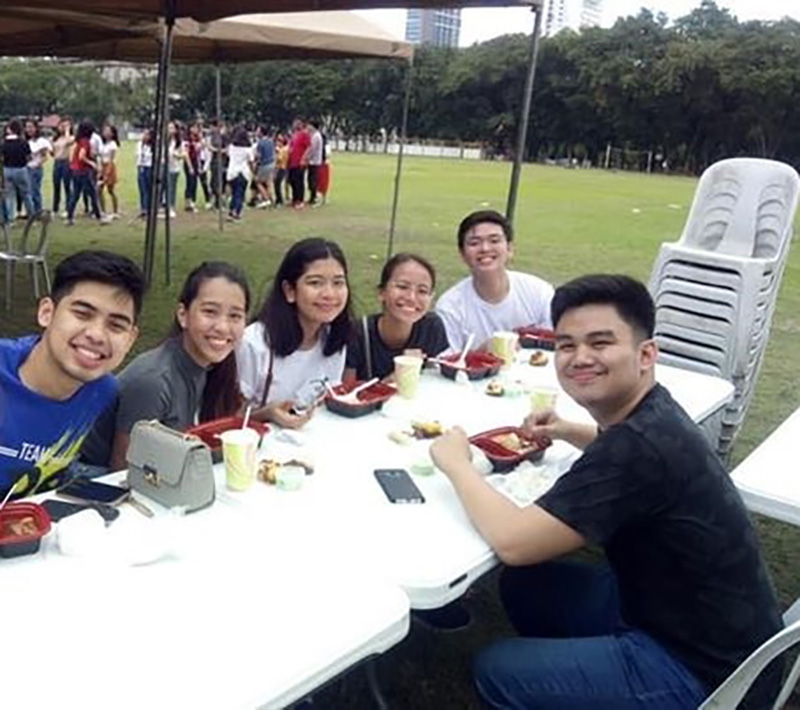
Josh and his friends back at UST
⋯





